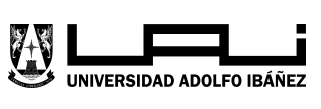BUSCANDO RESPUESTAS: APRENDIZAJE, CONOCIMIENTO Y FILOSOFÍA
DOI: https://doi.org/10.15691/0718-5448Vol9Iss1a130
Resumen
El presente ensayo pretende explorar la relación entre filosofía y ciencia desde una perspectiva epistemológica, discutiendo la relevancia del realismo científico para desarrollar un intercambio fructífero entre ciencia y filosofía. Primero, argumento que cambiar la definición tradicional de conocimiento no debe implicar escepticismo. En cambio, modelos científicos de la mente pueden servir como una guía epistemológica para definir la adquisición de conocimiento como un proceso dinámico; dónde quien aprende interactúa con la realidad. Segundo, argumento que estos modelos pueden retratar la realidad, aunque no de una forma directa o completa. En este sentido, la ciencia es considerada como proveyendo grupos de modelos de diverso grano, los que pueden ser comparados por la filosofía para mejorar la discusión filosófica.
Referencias
Bunge, Mario, Causality and Modern Science, Dover Publications, New York, 1979.
Bunge, Mario, Matter and Mind: A Philosophical Inquiry, Springer, New York, 2010.
Churchland, Paul, “What Happens to Reliabilism when It Is Liberated from the Propositional Attitudes?”. In Churchlan, Paul, Neurophilosophy at Work, Cambridge University Press, Cambridge, 2007, pp. 88-112.
Churchland, Paul, Plato’s Camera: How the Physical Brain Captures a Landscape of Abstract Universals, The MIT Press, Cambridge, 2010.
Churchland, Patricia, Brain-Wise: Studies in Neurophilosophy, The MIT Press, London, 2002.
Churchland, Patricia, Braintrust: What Neuroscience Tells Us about Morality. Princeton University Press, Princeton, 2011.
Damasio, Antonio, Self Comes to Mind: Constructing the Conscious Brain, Pantheon Books, New York, 2010.
Gettier, Edmund, “Is Justified True Belief Knowledge?”, Analysis, Vol. 23(6), 1963, pp. 121-123, Retrieved August 29, 2009, from: http://www.jstor.org/stable/3326922.
Jacobson, Anne, Keeping the World in Mind: Mental Representations and the Sciences of the Mind, Palgrave Macmillan, New York, 2013.
Lipton, Peter, Inference to the Best Explanation, Routledge, New York, 2004.
Lipton, Peter, “Evidence and Explanation”, In Bell, Andrew, Swenson-Wright, John & Tybjerg, Karin (Eds.), Evidence, Cambridge University Press, Cambridge, 2008, pp.10-28.
Psillos, Stathis, “The Present State of the Scientific Realism Debate”, The British Journal of the Philosophy of Science, Vol. 52, 2000, pp. 105-728, Retrieved December 07, 2014, from: http://www.jstor.org/stable/3541614.
Sellars , Wilfrid, “Philosophy and the Scientific Image of Man”. In
Sellars , Wilfrid, Science, Perception and Reality, Ridgeview, California, 1963, pp. 1-40.
Searle, John, The construction of Social Reality, Penguin Books, London, 1995.
Enlaces refback
- No hay ningún enlace refback.
Copyright (c) 2017 Simón Busch Moreno

Este obra está bajo una licencia de Creative Commons Reconocimiento-CompartirIgual 4.0 Internacional.



